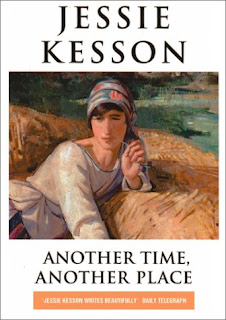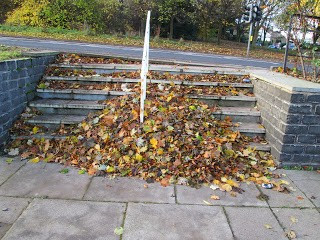Dr Arthur Philip Motley
Pat-Paddy Corry My mother was devastated when she had to leave the surgery as we were living too far away. When I was 17 and went to live in the States he came to the flat and had a long chat with me about the difficulties I might face. How good you and your family were to him.
I remember tea at Jenners being a very special treat,
sitting near a window to see the view. More often it was a film and high tea at
the Playhouse. Remember I am talking about the 1950s! We must have been seeing
Dr Motley before your flats were built! We saw Dr Motley from the very early
50s. I remember my mother looking at all the building going on and saying how
clever he had been settling there. His practice must have grown tremendously.
Peter Hoffmann Yes, I think
you're right Pat in that he appears to have got rid of the small branch
practice at Gorgie Road circa 1947 perhaps recognising the potential, but
serendipity too moving to Colinton Mains circa 1936. The NHS general practices
were paid on a capitation basis so yes it would have become lucrative - a long
way and a long journey from his recent ancestors working in the cotton fields
in The Deep South.
Pat-Paddy Corry Thank you for bringing him back to me. Did you know that our connection with him started in Duddingston Camp? (Note the Duddingston Camp was one of the camps in Edinburgh that provided temporary housing for the homeless who were not eligible for Council Housing, following the end of World War 2.) When we came from Auchtermuchty to Edinburgh in 1947, we had to stay in Duddingston Camp in a hut. You didn't get a whole hut. As a family of four we got 2/3 (two-thirds) and a mother and her daughter got the rest bricked off of course.
We had cold water, electricity and communal baths and toilets. It was awful for my mother but I loved it. There was acres of grass to play on, trees to climb and loads of children to play with. But we were viewed with horror.
At school I was the only one from the camp to get in. I was initially resented or pitied until I proved myself. I cut my foot badly one evening. The National Health Service had just started and people were thrilled to see me set off for a free doctor‘s visit. My foot was stitched and a little later the doctor committed suicide. His wife couldn't come to terms with her husband not working privately any more and having to deal with the riff-raff.
I thought it was my fault, going from the camp to his house in the evening. I don‘t know how my mother got hold of Doctor Motley but he came to the camp for a house visit. My mother and sister had lots of health problems. I remember following him out and asking him to please not kill himself. I'll never forget the look on his face. He told me that not only would he not kill himself, he'd come back to torment me. He gave me a sweet he had in his pocket - they were still rationed - and we parted with laughter.
We moved soon after to a respectable address where we had to play on
the street, and he remained our doctor until, I think, the late 60s or early
70s when he no longer could cope with patients so far away. My mother never did
find another doctor she liked. It was always a case of: "Well, he‘s not Dr Motley."
Please note my
father‘s little garden where he grew a few flowers so I could take them to the
teacher like other children.
Peter Hoffmann Thanks for this
Pat - I must add this to Two Worlds - fascinating and so interesting that he
was the Camp’s doctor.
Pat-Paddy Corry I don't know if he
was the Camp‘s doctor or whether my mother managed to get hold of him
privately. She went to work for the Tory Party. That‘s how I got into
Portobello School. We also got the flat in Montgomery Street after two years in
the Camp and I was still able to stay at the same school even though I was
miles out of the area. A lot of strings were pulled. I think Dr Motley only
came to us. He was very brave because of his colour. There was no-one of
colour in the Camp and he was the first black man I ever met. So I am sure he
was not the Camp doctor and came out of area. Montgomery Street was totally
different - a complete mixture of nationalities and colour. Sorry to disappoint
you. Perhaps in those days, he didn't have so many patients (pre 1950) and was
willing to travel. As far as I know we didn't visit him until we went to
Montgomery Street. I‘m so sorry if I confused you.
Peter Hoffmann No not at all Pat
- all very helpful and interesting helping to give a more rounded picture of
his life - I’m greatly enjoying reading your memories of him.
Pat-Paddy Corry I now remember a second
visit to the Camp by Dr Motley. He came to see my mother. When he was leaving,
my father was shouting at my sister and me. He went back into the hut and told my
mother to get out of bed as Dad wasn't fit to look after us. It was a bit unfair
to my dad who did shout a bit but never laid a hand on us unless Mum stood over
us and made him. He then made a big show of it and I knew I had to cry but he
never hurt me.
Peter Hoffmann Thanks for the
clarification - I'd assumed it was your mother. As Jessie Kesson might remark,
from a number of different angles, such a fascinating insight into 'another
time, another place' indeed, another world.






















